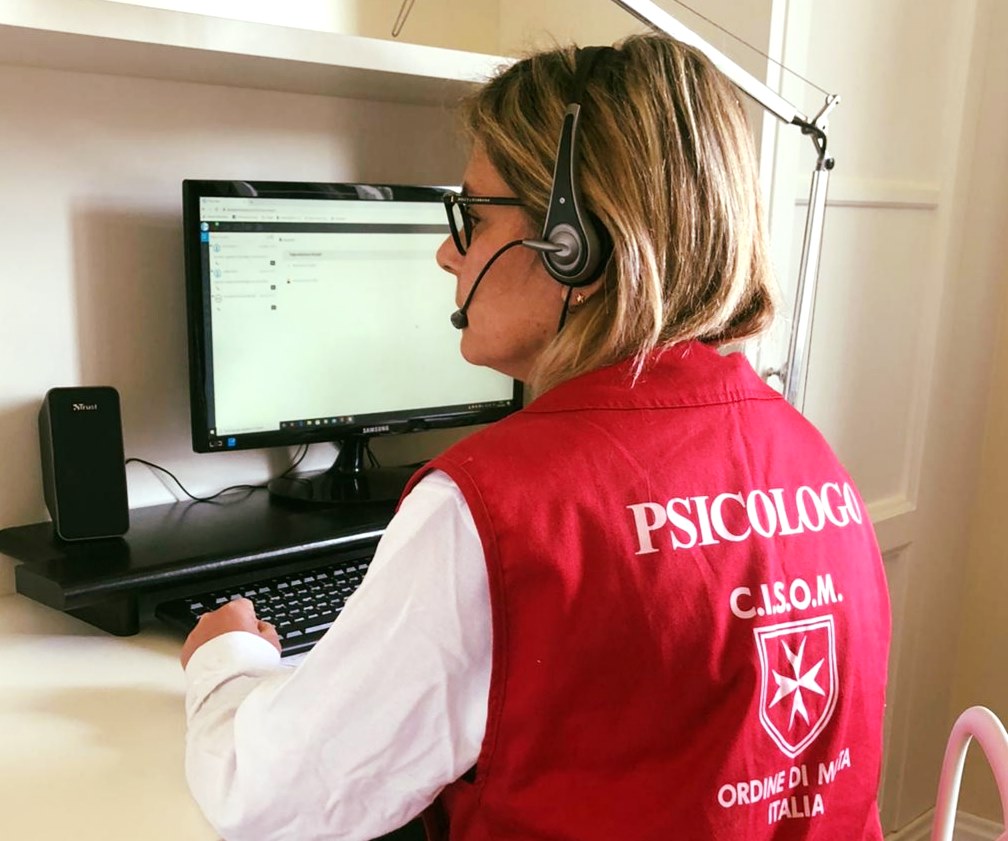The social and healthcare emergency caused by the coronavirus pandemic has complex psychological repercussions, many of them new, albeit emergency psychology is a well-established discipline. The psychologists of the Order of Malta’s Italian Relief Corps (CISOM) have been active in various regions of Italy for two weeks now: “Some forty of them are on the front line,” says Pierluigi Policastro, national head of CISOM psychologists.
How do you carry out your work?
Our work – performed in coordination with the Italian Civil Protection, the Red Cross and other emergency psychology associations – is carried out on two important fronts, external and internal. External support involves people in quarantine because tested positive for Covid-19, or in isolation because in contact with people who have tested positive. But at the same time, we immediately launched internal support for the Order of Malta’s doctors, nurses and volunteers who are working in the front line to defeat this pandemic. In addition, some professional associations have asked us to participate in support phone-lines they have set up: we are working with the Coordination of the Association of Psychologists in the Liguria and Lombardy regions, with the Regional Coordination of Maxi-Emergencies in Tuscany and also with some small municipalities in the Salerno province who have asked us for psychological assistance.
With what instruments?
Unfortunately, we can only use the telephone, because we have to protect our voluntary psychologists. Any other kind of intervention would be impossible.
What are the characteristics of this emergency?
“The Covid-19 emergency has its own particular features,” explains Policastro, “because for the first time each operator, professional or volunteer, has to cope not only with their personal involvement, but also that of their family and relations, in the same emergency. We ourselves are affected as well as those we assist. We are mostly dealing with people who have been discharged from hospital. They have recovered, yes, but they are devastated. They have probably spent days in beds alongside other sick people who haven’t made it. They have been alone, without their loved ones beside them, without even sharing a tear. And then we mustn’t forget how important and full of significance is the ritual and symbolic aspect for treating suffering.
What advice can you give?
We are facing a new type of intercession, so it is necessary to consider the importance of psychological support now and in perspective. We have to help people to use this moment as an evolutionary stage. We are not concerned with silencing symptoms, like a doctor who has to treat an interstitial pneumonitis. We intervene during a subsequent stage; we are in an active listening system and we try to give elements of psychoeducation. To this end, we have also set out some indications accessible on the Order of Malta’s CISOM site, including a vademecum precisely for healthcare and civil protection agents: https://www.cisom.org/news-2/covid-19-indicazioni-per-il-benessere-psicologico-degli-operatori-sanitari-e-di-protezione-civile/











